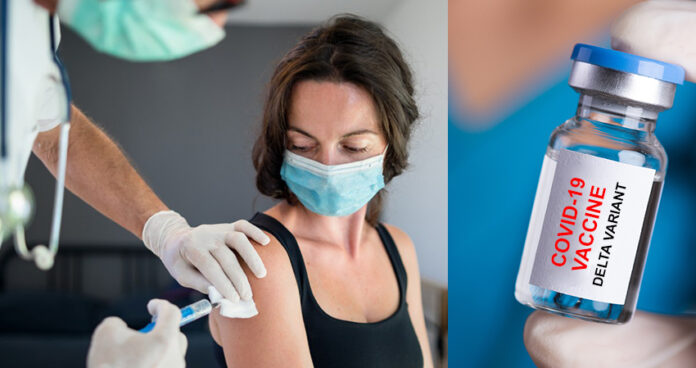Delta variant is a version of coronavirus, also known as lineage B.1.617.2. It was first detected in India last year and has been identified in over 90 countries. The fears have been rising about the variant which is more contagious than its predecessors. With each version, COVID-19 continues to hinder global efforts in curbing the pandemic. It has forced many countries to reimpose lockdowns and restrictions to preserve public health. According to reports, Delta is 40%-60% more transmissible than the Alpha variant (B.1.1.7) of coronavirus. Medical experts have said that this variant seems to allow an additional amount of the virus to build up inside infected people. Thus, the more they host it inside, the more quantity they expel to infect others. This has raised debate on whether the current vaccines are effective against this variant or not.
How Rapidly the Delta Variant is Spreading?
Delta variant has been causing most of the spike in the UK, India, USA, and Europe. The WHO warned that it could become the most dominant lineage of coronavirus globally if the current trend continues. In previous versions, the Alpha variant has been reported in around 170 countries, Beta in 120 countries, and Gamma in 70 countries. Where Alpha remained the most dominant variant worldwide, Delta appeared in the UK at the end of April 2021. It quickly overtook Alpha and became the reason for 94% of new cases reported in the UK within 2 months. Moscow registered 144 new deaths due to this variant. Portugal reported that 51% of its total cases involved Delta strain.
In those regions where the vaccination process is not picking up pace, the delta strain is progressing alarmingly. In Africa, the cases have shot up by 25% during the last week of June. Even some countries where vaccination campaign is fully active, have also displayed concerns with the new variant. Israel was able to drop the number of daily cases but it has again imposed restrictions after seeing surges.
Health officials explained that it transmits in a dangerously short time. People can get infected during a 5 to 10-second encounter. Scientists are not entirely sure how can this variant do that. Some say that it could be due to the reason that the infected may emit high viral particles. They also argue that the virus may need less time to infect, or the person could get infected with only a small amount of exposure. The WHO advised the global citizens to keep following COVID-19 rules, even after vaccination.
How is it a Problem for Vaccines?
Research indicated that the Delta variant has accounted for almost 99% of new cases in the UK right now. It emerged as a greater threat for increasing hospitalization and resisting the initial dose of vaccines. The preliminary data showed that this version has infected those who had received only 1 dose of currently available vaccines. Although it is early to say, health officials have ensured that both doses offer high protection against B.1.617.2. But is it really the case?
According to tests conducted by Public Health institutions, the effectiveness of vaccines fell from its original rate. Even after two weeks of the second Covid jab, Pfizer/BioNTech’s 92% efficacy for the Alpha variant fell to 79% against the new variant. Similarly, Oxford/AstraZeneca vaccine efficacy fell to 60% after providing 73% against the previous versions. It is also important to note that the efficacy rate of vaccines is different between symptomatic disease and infection.
These efficacy rates were further less after one dose of vaccine as they normally are in the case of Alpha as well. However, against Delta, Pfizer/BioNTech offered 36% protection and Oxford/AstraZeneca was only 30% effective. This means that the vaccine protection against coronavirus may differ according to the variant. Scientists opined that low numbers for efficacy may point to the fact that it takes longer for a vaccine to reach maximum efficacy against the new strain.
Will There be More Variants?
As the world did not predict the second wave of coronavirus, it has been advising more caution for a possible third wave due to the Delta variant. The studies concluded with further emphasis on getting both doses, as vaccine efficacy against Delta doubles after the second shot (30% to 60% in the case of AstraZeneca). If more people vaccinate, the more chances there are to build a vaccine wall. There is an R number that indicates the ability of coronavirus to spread at a certain rate. Mass vaccination would allow the humans to keep R number below 1, even if there is an outbreak nearby. This way there will be no increase in the outbreak.
It calls for much faster deployment of vaccines globally as the COVID transmission around the world is increasing unprecedently. As the transmission rate grows, the chances of new variants emerging also grow. It was also not the time to nationalize or politicize vaccines, as Bill Gates suggested to not share vaccine formula with the world.


